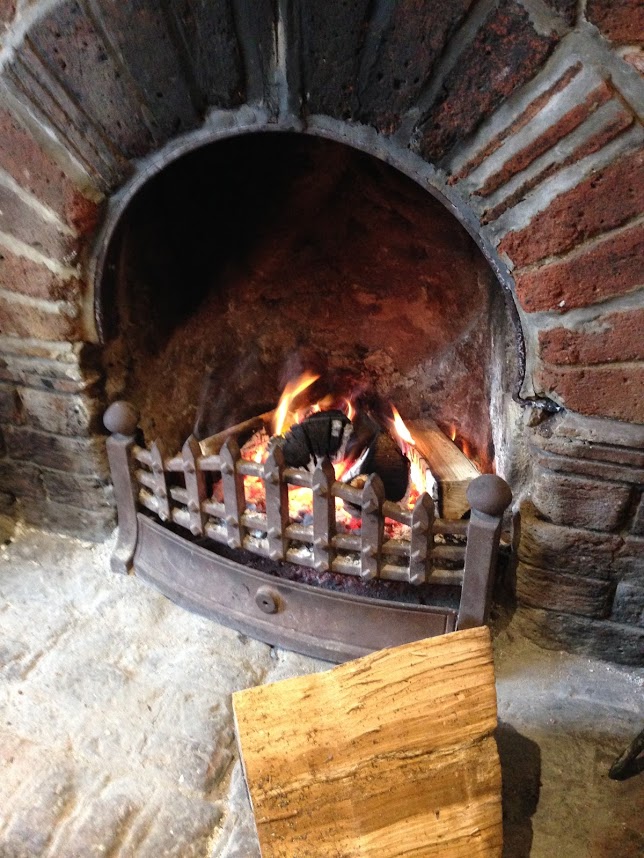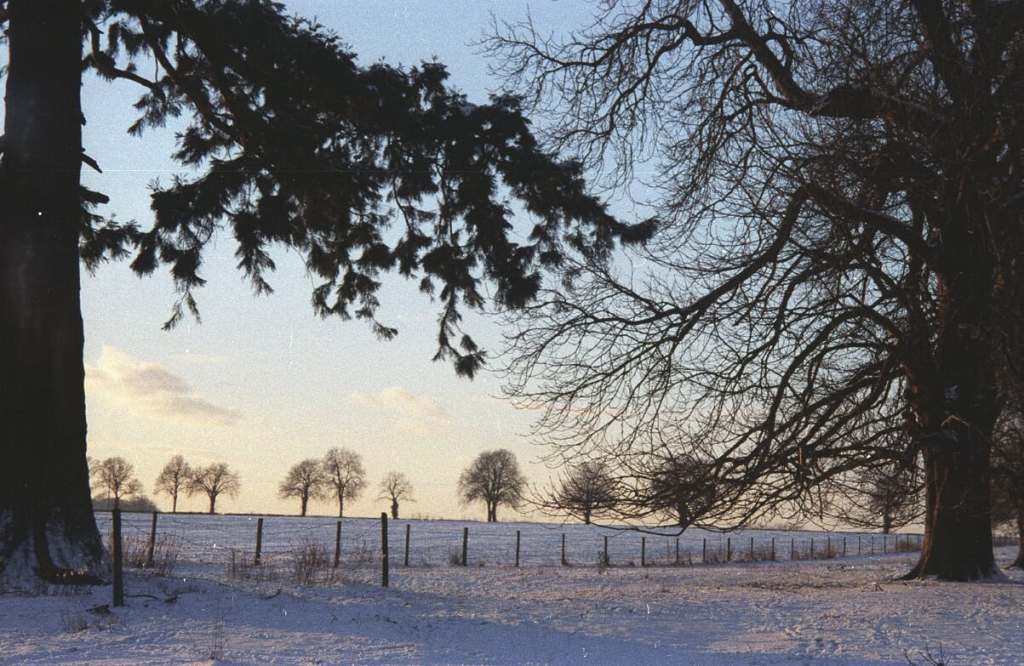In his masterpiece ‘The Shepherd’s Calendar‘, John Clare reminds us of traditional English rural life through the changing seasons. Those were hard times of course, yet they had something precious that today we seem to have lost.
The Shepherd’s Calendar -January
‘Withering and keen the Winter comes,
While Comfort flies to close-shut rooms,’
As winter bites outside, in the hospitality of a warm pub, the farmers read the papers, talk about the weather and the price of corn while sipping their ale. Outside the children play in the snow and skate along the frozen streams.

But the workers in the fields have not had it so easy. By evening with frozen hands and faces they wearily return home for a meal and some warmth around a cottage fire. The milkmaid with her pail of milk is noticed with keen interest by the hungry cat! The thresher leaves his flail in the barn and the shepherd returns with his dog. The hedger throws one of his hard-gained brushwood faggots on the welcome fire.

Clare’s poetry is a language which seemed to come from the very earth itself, and which had belonged to the centuries of men and women who had cultivated it. ‘The truest poem of English country life’, it has rightly been called. …….He takes us to the heart of it and is its very voice.
‘Talking about John’ Clare by Ronald Blythe (former president of the John Clare Society)
As each one warms their hands by the cottage fire they
‘tell in labours happy way
Their story of the passing day
While as the warm blaze cracks and gleams
The supper reeks in savoury steams
Or kettle simmers merrily
And tinkling cups are set for tea.
Thus doth the winter’s dreary day
From morn to evening wear away.’
After tea the shepherd plays with his children while, underneath his seat, his tired dog lies asleep chasing the straying sheep in his dreams. Supper removed, the mother tells her children story-tales as she knits or sews until finally it’s the children’s bedtime.
Traditional English Village Life
There is all of village life in winter going on here. These intimate pictures of hearth and home on winter evenings were rare times of family pleasure after a weary day of work outside. It was John Clare who noticed all these things and turns them into a scene of simple charm. This is a rural village landscape Clare loved, breathed and wrote about with his own calloused hands, used to working in its fields..
Asked where he found his poetry Clare once replied, “I kicked it out of the clods, while ploughing the fields.” We know that the fields sang to him, and that he reported the song, and with never a false note.
Ronald Blythe

Un-rootedness
Today something is missing in the rural landscape. The fields are silent except for the sound of the wind and a lone tractor driver at work. This old shepherd’s hut speaks of a bygone age. There is now an increasing loss of rural village life with its sense of place and of belonging to the land with its local life and traditions.

Small village communities with their own pub, shop, church, local school and shared community life are increasingly rare. Somewhere you greet passers-by in the street, stop to chat with neighbours in the local shop and join in village life.
In the winter evenings Clare’s village folk gathered around blazing cottage fires, joined in conversation, sharing their stories of the past day and spending time with their children. In our hectic modern world of enclosed, private lives there is a growing sense of un-rootedness and isolation. Clare reminds us of what we are missing. and our need of rediscovering traditional English shared village life. He makes us feel, inwardly, that this is where we really belong. Our true roots are here.
Listen again to part of this poem read aloud – as all poems ought to be.
Top featured photo by Andrew Hill – ‘River scene in Winter’ – geograph. Taken in the cold winter of 2010.

It is a longing for the past that the elderly chat about..we live in someone else’s age, looking through eyes that have grown weaker with the fading years and the “changes”. As a young man I yearned for the future-now I wonder what happened! But I take comfort knowing the past and the future lie folded on the table beside me, book-
marked and waiting for my day also.
LikeLiked by 2 people
Thank you, Jim. A very thoughtful comment. Our present age needs to learn so much from the best of the past. But happily we Christian believers know the One who will open that book and reveal his glorious future for us.
LikeLiked by 1 person
How beautiful. I’m sure it’s my genetic memories I feel stirring as I read your and John Clare’s words and enjoyed the beautiful images. Have you read Larkrise to Candleford by Flora Thompson …
LikeLike
Thank you, Lois. We much enjoyed watching the BBC’s dramatization of ‘Larkrise to Candleford’ some years ago. Such ‘period dramas’ are very popular over here. May they continue to stirr genetic memories for all of us.
LikeLike
A lovely post Richard and thanks for the link to John Clares poem. It was a joy to listen to.
LikeLike
Thanks Clive. I’m glad you like the link as much as I do. The poem is read so well. It sings with joy.
LikeLike
Thank you for this wonderful, thoughtful post, Richard. I do like Clare’s poetry very much; poor man, how he suffered during hs life. Thank you for the link and for the Ronald Blythe quotes (another favourite writer!).
LikeLike
Thanks, Clare. I expect Ronald Blythe’s writing about Suffolk is especially meaningful for you. He must have lived not far from you. His book about John Clare is excellent.
LikeLiked by 1 person
I am so glad I have discovered John Clare’s beautiful poetry. It evokes such imagery. I live in Australia where we have such different seasons and lifestyles but that yearning for a time captured in the past and the ritual of daily life in rural areas is familiar.
LikeLike
I’m glad you enjoy Clare’s poetry. He is very popular here, reminding us of a simpler yet richer past without all today’s modern distractions. Best wishes as you enjoy your hot Southern summer. It’s cold here!
LikeLiked by 1 person
We did get snow at my property in 2020! But it doesn’t last long. Take care in your winter.
LikeLiked by 1 person
The poems are full of atmosphere – those little details that build up a real picture of sitting around the hearth. We definitely are missing something – and I fear we’ve moved even further apart in the last couple of years – then again, there are many who are taking the opportunity to slow their lives down. Thank you for sharing a post whose atmosphere I delighted in.
LikeLiked by 1 person
Thanks, Andrea. Clare’s poetic eye saw everything. We’re glad he did. He shows us the warmth of family and community life, even in hard times. We all have roots somewhere.
LikeLiked by 1 person
A wonderful post. I look forward to reading more
Thank you
LikeLike
Thanks for your support.
LikeLike
Do you know where this quote comes from that Ronald Blythe refers to: “I kicked it out of the clods, while ploughing the fields.” I simply can’t find it! it would be very helpful to know. Thanks for lovely article.
LikeLike
Thank you Lucie. I think the quote came from ‘Talking About John Clare’ which I borrowed from our local library. It’s only available to buy on Kindle. https://www.amazon.co.uk/Talking-About-Clare-Trent-books/dp/090548844X
You could also try The John Clare Society Journals on their website, which is always well worth visiting. Or you could try https://www.goodreads.com/en/book/show/13818799-at-helpston.
Welcome to my blog. I’m always pleased to meet another fan of John Clare.
LikeLike
You have reminded me of some lovely poetry – it adds to our lives. And great photos too, more well being. Thanks
LikeLike
Thank you. Yes indeed, I loved the recorded reading at the end of my post.
LikeLike